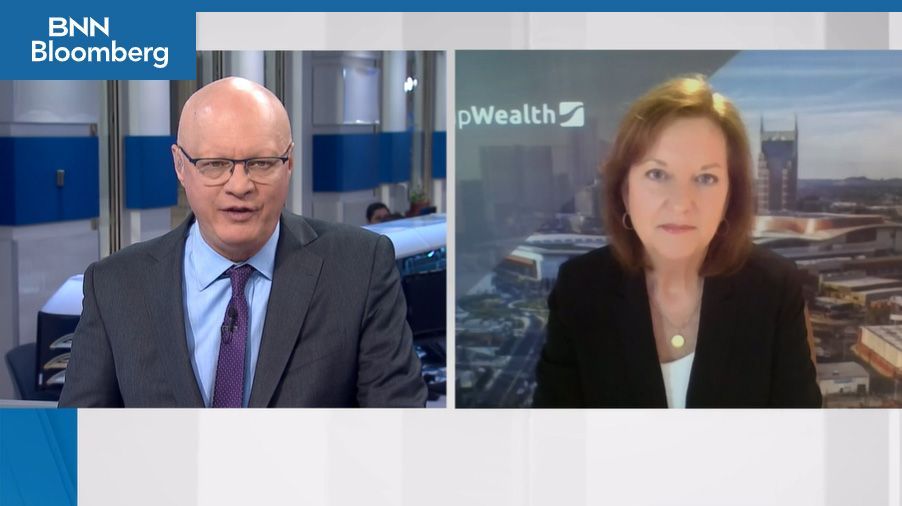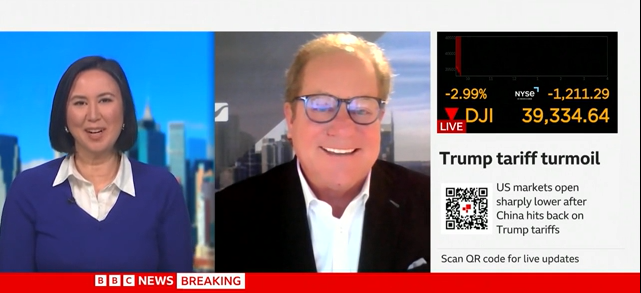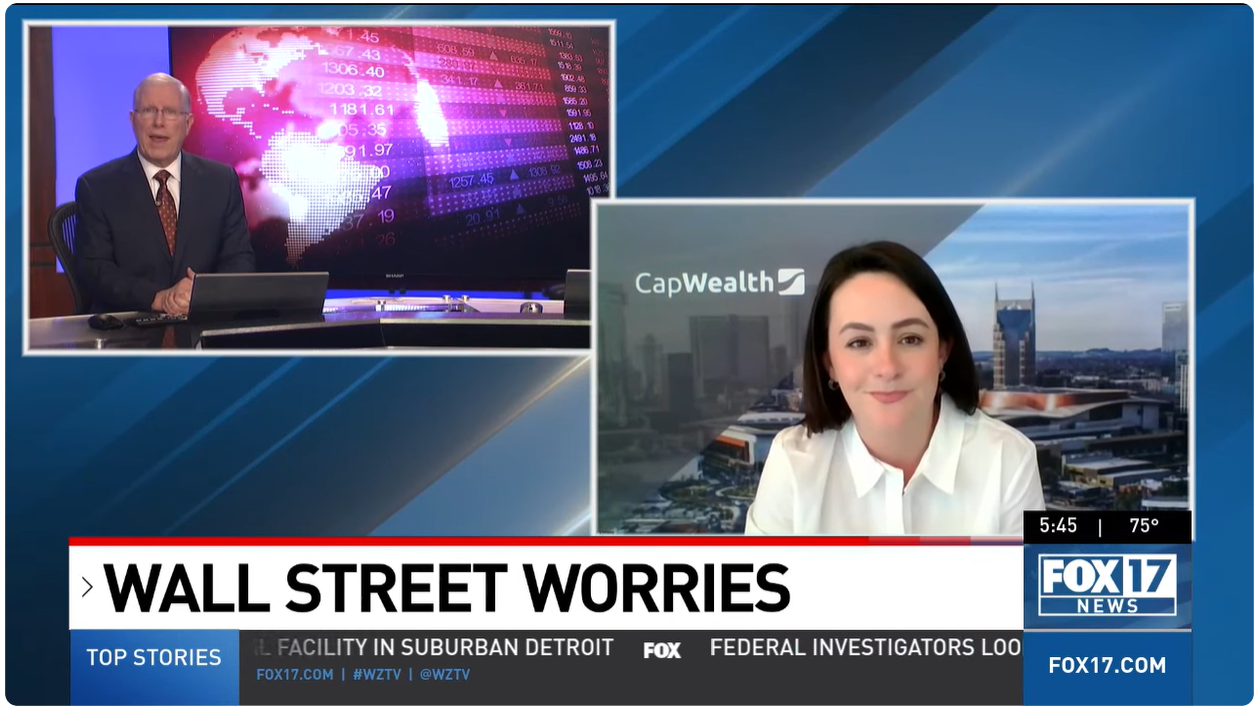Stocks Close Near Session Lows as Russia-Ukraine Tensions Continue to Escalate
February 23, 2022
Grant Stark, Director of Research at CapWealth, attributes ongoing market losses to geopolitical risks from Ukraine and Russia, and advises focusing on high-quality, dividend-paying companies with strong balance sheets.
Interviewer (Speaker 1):
And back to the major indexes, again, losses across the board, the S&P down for a fourth day in a row and falling deeper into correction territory down worse than 10% from its recent high market's ending near their session lows.
So joining me now to break this down is Grant Stark, director of Research at CapWealth. Grant, thanks so much for joining. Losses really accelerating into the close. What was behind that?
Grant Stark (Speaker 2):
It's just more of the same geopolitical risk we're seeing from Ukraine and Russia. It's sort of not a surprise at this stage, I think for a lot of investors. And as you said earlier in the segment, taking risk off the table.
I do think that this is going to be a theme we're going to see going forward through the year. Whether it's Ukraine or inflation, investors are just a little bit more weary than they were in the last year.
Effect of Rising Eastern Europe Tensions on the West
Interviewer:
What's the risk for Americans, for consumers, investors and companies as tensions do rise in Eastern Europe? Is it the threat, Grant of higher prices across the board, inflation already higher or is there something deeper than that?
Grant Stark:
Yeah, I think it is higher prices, but in more specific categories. If we're going to look at the Ukraine prices specifically, we're going to focus on oil prices. And we've already seen President Biden, the administration today saying they may release more of the strategic oil reserve. And so oil prices are certainly what we're focused on here as more pressure. And I would say offsetting that though, the Iran nuclear deal has gained some traction and Iran is actually offloading some of its oil onto tankers in the Arabian Gulf, and so that may have some offsetting effect.
But overall, yeah, consumers I think in the US should mostly be paying attention to the oil prices. And I think other prices and inflation may be less affected by this particular crisis, although inflation does continue to be a problem across the board.
Impact on Technology Stocks and Opinion on Buying the NASDAQ Dip
Interviewer:
Well, what about for some of these richly valued technology names? We do see that those highly valued, in some cases, highly levered tech companies, underperforming the worst today. Some investors have wondered, does it make sense to buy the dip on the NASDAQ, for instance? What's your take?
Grant Stark:
Yeah, it's certainly been surprising when you look at the NASDAQ and what's actually underlying that. A lot of these companies have performed even worse than what the NASDAQ indicates. There's companies like RingCentral, Peloton, a lot of these high-flyers last year are down 50 to 70%. And so I think it is time that investors can start looking that direction.
But we at CapWealth, we take a holistic view in all climates and we look at the higher quality companies right now that are really earning high quality cash flows, have a good balance sheet, and that to me is where you'd want to focus some of the buying energy today.
So higher quality names, Walmart, Coca-Cola, D. R. Horton, some of the home builders to me are where you want to focus. And I think the sentiment we're seeing in the market is there still is a very big risk off mentality with those tech names that you mentioned. And that may continue for some time, but if you're a long-term holder and you believe that these companies have their strategies lined up and management is executing properly, holding for a long time at these prices is probably... You may do well in that environment, on those tech names.
Predicted Path Forward for Rate Rises to Combat Inflation
Interviewer:
You're the director of research, Grant at CapWealth. What's your own expectation at your firm for the path forward for rate rises that we'll see this year to combat inflation?
Grant Stark:
Yeah, so we do expect, as a few rate rises, I think we're on the lower end of the spectrum. We've heard everything from two to seven. We'd probably say somewhere in the middle there, two to three, and I expect in March we'll see the first rise.
The good thing is the market is already baking a lot of that in. And so the Fed can do more on their balance sheet side and asset purchases, and as they slow that side down, that may have some effects as well. So we sort of are looking at the entire Fed's playbook and not just interest rates, which gets most of the headline. And we think it will be a rising interest rate environment over the next couple of years, and that's how we're planning our allocations.
Potential Impact on the S&P 500 Index
Interviewer:
What does that mean? I mean, could we see losses in the S&P 500 this year? I know some of the banks still calling for the S&P to rise in the low double digits. Would you agree with that?
Grant Stark:
Well, what I would say is there's still tremendous amount of liquidity in the system from the Fed programs and from savings rates over the past 18 months. So we have a lot of money still sloshing around the system that has to work its way through. My expectation and our expectation at CapWealth is that we'll see more volatility this year as we've seen already. But the choppiness may happen further out maybe in the next 18 to 24 months, where this year, because of the purchasing power that we have behind the economy, that should help sort of provide a floor.
But with that said, we're seeing a lot of the pain in these technology companies because those are future dollars that they need to earn in growth. And so when you have this high of inflation, those dollars are worth less in today's money. So that's why we are looking at higher quality companies that are profitable today with good balance sheets, and that sort of gets us through any environment and especially the companies that are paying dividends, we don't have to worry so much about a specific interest rate.
Preference for Stocks Paying Dividends and Their Prospects
Interviewer:
Sure. So stocks that pay dividends, Grant, sound attractive to you. I know in general that income has been attractive to other investors this year. Do you think there's still room to run in some of those dividend paying stocks, or do you think we might be looking toppy in those names right now?
Grant Stark:
I think the difference is in the past six months is it's on a case by case basis now, instead of being able to just broadly buy the market baskets and ETFs, it really does pay to look. And so you want to look at sectors like home building.
We're short 5 to 7 million home units in the US we can only add 900,000 a year. So there's a half decade to a decade long backlog in homes. So some of the home builders that are yielding 4 to 5% on a dividend also have a tremendous backlog of work and those types of areas, those specific businesses that are high quality, that is what I like to buy today.
Case by Case Basis for Investing in Market Baskets and ETFs
Interviewer:
What's the worst case scenario for the stock market Grant, just as questions do remain about the path forward of a deeper invasion by Russia into Ukraine?
Worst Case Scenario
Grant Stark:
Yeah. Worst case scenario is we're just going to see more volatility. We could see more downside movement as we've seen in the last day and even today, the sell off. We're already in correction territory like you've mentioned on the show, but it's more just downside volatility.
But I do expect by the end of the year that we're going to tread some water just given what we discussed on the tremendous volatility or the liquidity that's still on the system.
Interviewer:
All right. We got to leave it there. Grant Stark, Director of research at CapWealth on a day when we saw heavy losses across the major indexes with the S&P falling for a fourth day, a down worse than 10% from its recent high.













